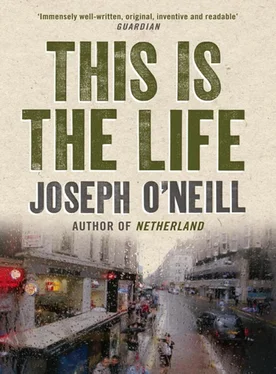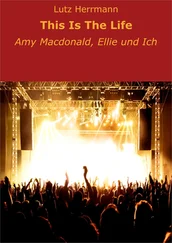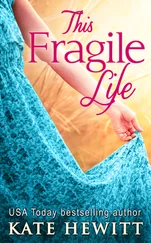‘Yes, Madam,’ Donovan said. ‘I have.’
The registrar then voiced another misgiving. She said, ‘It really is far from ideal, Mr Donovan, that you should choose to represent yourself in this matter. I am extremely surprised that you, of all people, do not appreciate this.’
Donovan said nothing.
The registrar raised her eyebrows and turned to the question of reconciliation. What was being done about it, she wanted to know. Hughes spoke up.
‘Madam, I am instructed by Mrs Donovan that the breakdown of the marriage is truly irretrievable,’ he said. ‘Every avenue of rapprochement within the marital framework, if I may put it that way, has been pursued and, I am sad to say, exhausted. That being so, Mrs Donovan cannot see how any improvement could be affected at this stage; Madam, sadly, events have taken us past the point of no return. Indeed,’ Hughes pointed out, ‘if Mr Donovan would recognize this fact, we would all be spared these painful proceedings.’
‘I am sure Mr Donovan is aware of that, Mr Hughes,’ the registrar said sharply.
After dealing with several routine matters and grumbling about the Petitioner’s pleadings, the registrar fetched the court diary and set a date for the trial: 2 February 1989. Then she removed her glasses. ‘There remains little to add at this stage. I must however say this, which I am sure will come as no surprise to all here: namely, that every effort must be made to settle this matter one way or the other. It strikes me that there is room for more, shall we say, realism on the part of both parties. The courts must not be used as a battlefield for marital warfare. The entrenched positions of the parties must, if at all possible’ — here the registrar paused for the first time, deciding on the most efficacious exit from the sentence she had started — ‘be modified. Otherwise this matter will end up causing a great deal of unnecessary suffering and expense — more, I fear, than at present has been bargained for. That is all.’ The registrar put her glasses back on her nose and began writing.
‘Michael,’ I said, when we had come out into the corridor, ‘what —’
‘Arab,’ Donovan said, ‘please. Arab.’
He was, I realized, talking to the woman who had sat next to me in the registrar’s room — the woman I had taken to be Philip Hughes’s assistant.
She did not reply. She turned her back and began walking away with her solicitor.
‘Arab,’ Donovan said again, following her, knocking against shoulders in the corridor, ‘Arab, wait.’ People looked on curiously and the usher walked over to see what was happening. It was his job, after all, to make sure that no ruckuses broke out.
Philip Hughes turned to face Donovan, blocking off the stairway which Arabella quickly walked down.
‘Now then,’ the usher said, arriving on the scene. A whiff of alcohol came from his breath. ‘Now then.’
‘Mr Donovan, I think it’s clear that my client does not wish to talk to you,’ Hughes said.
‘Gentlemen,’ the usher said. ‘Gentlemen. Could you please discuss this elsewhere, please? There’s people that want to use the stairs.’
Hughes said, ‘For myself, I would be only too pleased to talk to you, Mr Donovan. We’re prepared to settle this matter in the most advantageous terms,’ he said. ‘I really think you ought to hear what we have to offer.’
Donovan gave Hughes a faint smile and said lightly, ‘I know what you have in mind. I’m not interested. And I don’t think you’re serving your client well by advising her not to speak to me.’
Hughes said, a don’t-blame-me tone in his voice, ‘It’s Mrs Donovan who does not wish to speak to you. Those are my instructions.’
‘Thank you, gentlemen,’ the usher said firmly, ‘thank you now.’
Donovan waited for a moment and then turned to me with a smile. ‘Come on,’ he said.
I accompanied Donovan back to his chambers. I had business to attend in the Temple, I told him. It was a sharp, breezy morning with blocks of sky-blue sky overhead. The Strand was ringing with pneumatic drills and tumultuous lorries, and the air reeked with gases. Workers yelled and hammered on the scaffolding that covered the buildings. Everything was strangely clear, and I walked along in Donovan’s slipstream like a vivid dreamer. His gait had not changed. Long, fast strides, eyes front. Struggling to keep up with him, my arms full of flapping papers, trying to catch what it was he was saying before the wind took hold of his words, I could have been back in my pupillage.
We walked through the Temple past Fountain Court and into Essex Court. We stopped at number six.
To my surprise (he had never extended such an invitation to me before), Donovan said vaguely, ‘Well … Are you sure you don’t have time for a coffee?’
I hesitated. I had time. Time was not the problem.
I was about to say, No, no thank you, when I thought, Why not. Yes, why not, I thought suddenly.
I said, ‘Thank you, I will if that’s all right. Just a quick cup.’
For the first time in a decade I climbed the stone steps into chambers and when I got up I felt a slight wooziness, as though I had just reached some mountain-top. I followed Donovan to the clerks’ room and waited by the door as he checked his pigeon-hole and his diary. The clerks’ room was the same as ever: the briefs piled up against the windows, the telephones dinning, the barristers rushing in and out. I recognized several of them but decided against offering any greetings. What would have been the use?
Armed with coffees, up we went to Donovan’s room, and while he leafed through his mail I looked out of his windows, a briefcase in one hand and a coffee-cup in the other. I still wore my overcoat, unbuttoned. Down in the courtyard the cars were huddled tightly, like metal cattle at a water-hole, around a young tree with a fence around it.
‘Well, that was my first appearance in a matrimonial case,’ Donovan said. When I turned round I saw that he was sitting back in his leather armchair, still looking at his papers.
I did not want to reply to this. I knew it was his way of making light of the situation and that he did not expect a response. But I felt I should say something.
‘Was it?’ I said.
I put my coffee on the window-sill and stayed where I was. Apart from a chair right at the other end of the room, there was nowhere for me to sit down. I did not feel comfortable about pulling that chair all that way across the room. At the same time it occurred to me that I could not remain standing by the window indefinitely.
‘So, James …’ Donovan said, continuing to open envelopes and unknot brief ribbons. Twenty seconds must have passed before I understood that he was not going to follow up on what he had said. He was fully absorbed by what he was reading.
I began to feel an uneasiness. I had never been in this position before. It was the first time that I found myself alone with Donovan in a purely social situation — for that is what coffee is, after all, a social situation. It would have been out of place for me to mention the case, or the hearing that had just taken place. On the other hand, Donovan himself had referred to it, so maybe it was a proper subject of conversation. But then that was his prerogative, I reflected: it was his divorce, not mine. He could bring it up whenever he chose to.
‘Busy at the moment?’ I asked finally.
‘Yes,’ he said, after a pause.
I drank up my coffee. Donovan continued reading.
‘Doing any books?’ I said. I spoke casually. I did not want to betray my snooping at his desk, or my unduly rapid heart.
Donovan groaned at what he was reading and picked up the telephone. ‘Sort of,’ he said abruptly. ‘Hello, Rodney, what’s all this about the Amoco arbitration?’
Читать дальше
Конец ознакомительного отрывка
Купить книгу












